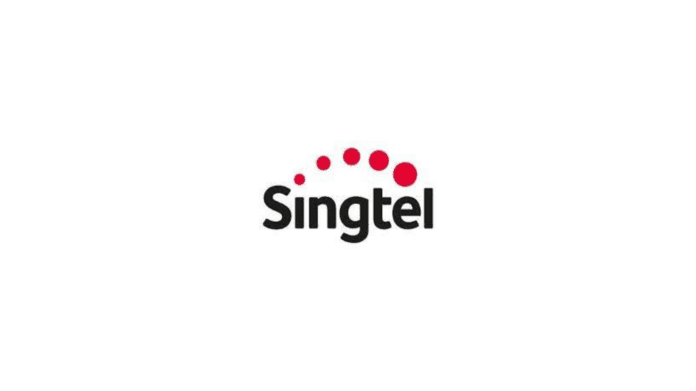Singtel’s net profit for the full year grew two and a half times to S$1.95 billion primarily due to a net exceptional gain from the Group’s divestment of its 70% equity stake in Australia Tower Network compared to a net exceptional loss last year. Underlying net profit improved 11% to USD 1.92 billion, mainly lifted by Airtel’s resilient turnaround. Operating revenue fell 2% to USD 15.34 billion while EBITDA was also down 2% to USD 3.77 billion, reflecting lower NBN migration revenue, the continued impact of COVID-19 and challenges in the carriage business. Excluding NBN migration revenue and Jobs Support Scheme (JSS) credits, operating revenue was stable, with EBITDA and EBIT growing 8% and 33% respectively, driven by strong growth in mobile service in Australia.
“This improved set of results underscores the Group’s resilience in spite of the pandemic’s challenges and the uncertain macro environment. Our mobile business in Australia and our regional associate Airtel capped the year with solid performances to deliver good results. “
Mr Yuen Kuan Moon, Group CEO, said, “This improved set of results underscores the Group’s resilience in spite of the pandemic’s challenges and the uncertain macro environment. Our mobile business in Australia and our regional associate Airtel capped the year with solid performances to deliver good results. Roaming revenues are showing early signs of recovery with the return of business and leisure travel, and NCS experienced strong demand from the accelerated push by government and enterprises to digitalise. We expect this momentum to continue into the new financial year.”
The regional associates’ pre-tax profit contribution grew 21% to USD 2.07 billion. This was driven by Airtel’s double-digit increases in operating revenue and EBITDA as it staged a sturdy recovery in India and saw sustained growth in its African operations. While the regional associates were impacted by COVID-related movement restrictions, Globe’s performance was further affected by Typhoon Odette in the Philippines as well as an increase in depreciation and finance charges. AIS also faced higher depreciation and amortisation charges from network and spectrum investments.
Mr Yuen said, “As we put the worst of the pandemic behind us, we’ve continued to execute on our strategy, growing our 5G market share and developing our growth engines in NCS and digital services to capitalise on large-scale digitalisation and position ourselves for the full resumption of market activity. NCS’ investments in four IT and digital services companies in Australia allow us to offer a compelling end-to-end digital transformation value proposition for customers in a market key to its expansion plans, and we will focus on scaling its business there. Our regional data centre platform will also support further growth, as we move beyond the pandemic.”
He added, “The partial divestment of Australia Tower Network is an integral part of our active capital management approach to unlock value from quality assets, and we expect to identify opportunities to recycle up to S$3 billion in assets in the mid-term. This keen focus on returns-driven growth will enable us to invest in our growth businesses while maintaining a strong balance sheet and delivering sustainable returns for shareholders. We have also put in place measures to mitigate inflationary pressures.
Singtel’s financial position remains solid. Net debt fell to USD 10.1 billion, from USD 12.4 billion a year ago, as cash and bank balances were boosted by cash inflows from divestments. Free cash flow for the year fell 9% to USD 3.08 billion on lower operating cash flow attributable to working capital movements and higher tax payments, partially offset by higher dividends from associates.
OUTLOOK FOR THE NEXT FINANCIAL YEAR ENDING 31 MARCH 2023
The macro economic and geopolitical outlook remains uncertain given tensions such as the Ukraine-Russia conflict, supply chain disruptions, a rising inflation and interest rate environment and the prospect of protracted economic stagnation. Against this backdrop, the Group is expected to benefit from the recovery in international travel as borders reopen post-COVID.
The Group will continue to execute on its strategic reset, growing 5G market share with multi-access edge compute as well as developing new growth engines in ICT and digital services that build on its core competencies and opportunities created by the large-scale digitalisation underway. NCS, the Group’s ICT arm, will focus on integrating its recent new investments as part of its transformation into a digital and technology services firm in Asia Pacific. In addition, the expansion of Singtel’s regional data centre platform will provide further impetus for medium to long-term growth.
The Group expects dividends from the regional associates to be approximately S$1.1 billion and the Group’s capital expenditure to be around USD 2.6 billion, comprising A$1.7 billion for Optus and USD 0.9 billion for the rest of the Group. This reflects the Group’s multi-year growth investments in 5G networks, data centres and satellites, as well as digital transformation initiatives to enhance customer experience and efficiency.







